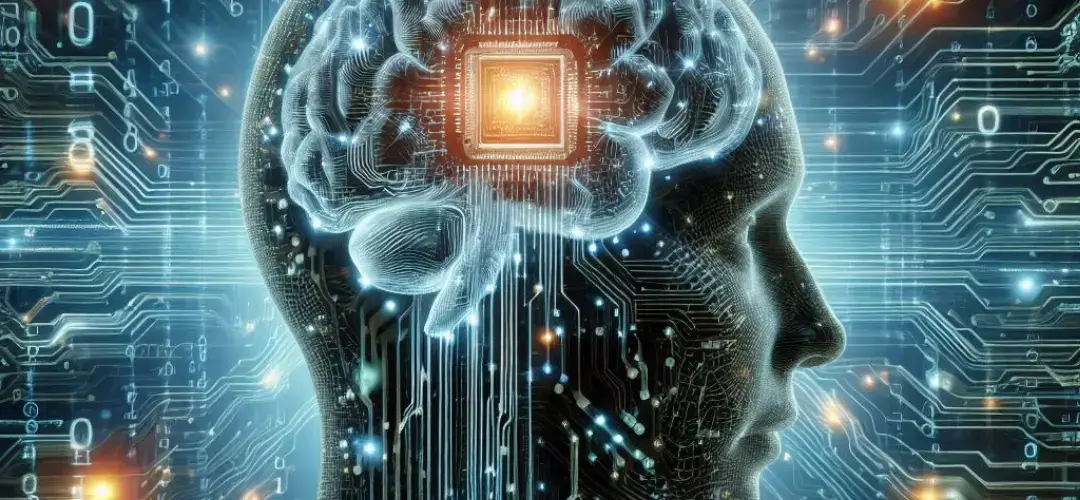What is Artificial Intelligence (AI)?| Definition, Types & Uses of AI
Introduction
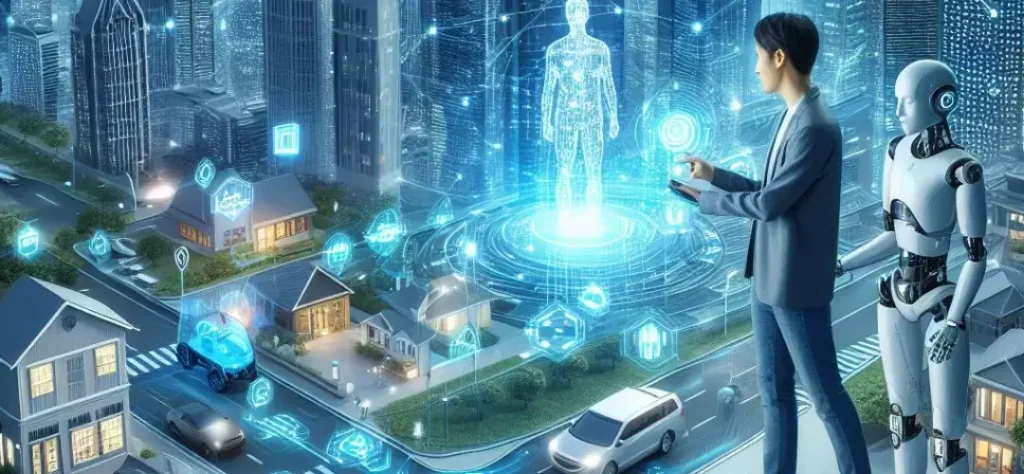
Artificial Intelligence (AI) is transforming the world. From virtual assistants to advanced predictive models, AI is integral to our daily lives. This comprehensive guide explores AI’s definition, history, types, applications, benefits, and challenges. Whether you’re a tech enthusiast or curious learner, this article provides a thorough understanding of AI’s impact on various aspects of life.
What is Artificial Intelligence (AI)?
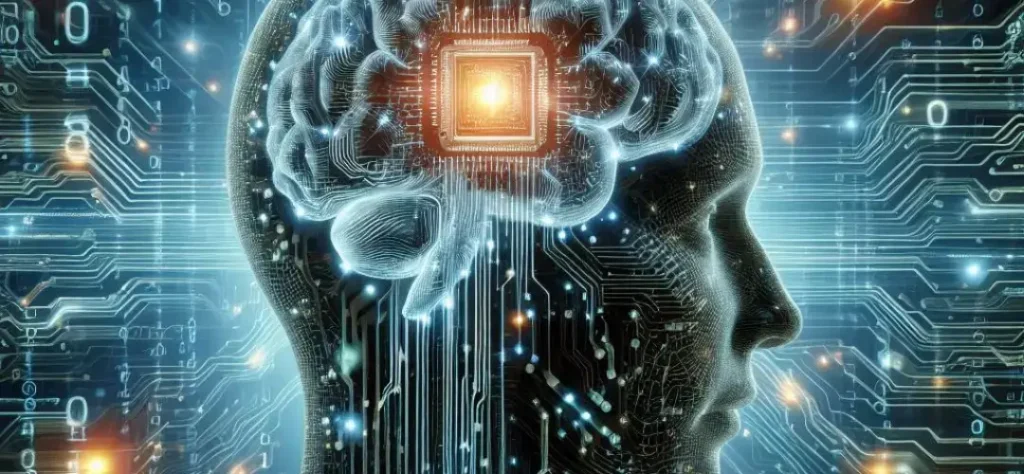
Artificial Intelligence (AI) involves creating computer systems that perform tasks requiring human intelligence, such as learning, reasoning, and problem-solving. These systems mimic human cognitive functions and improve through data learning. Understanding AI highlights the advancements in technology and its influence on diverse sectors, enhancing efficiency and decision-making.
History of Artificial Intelligence
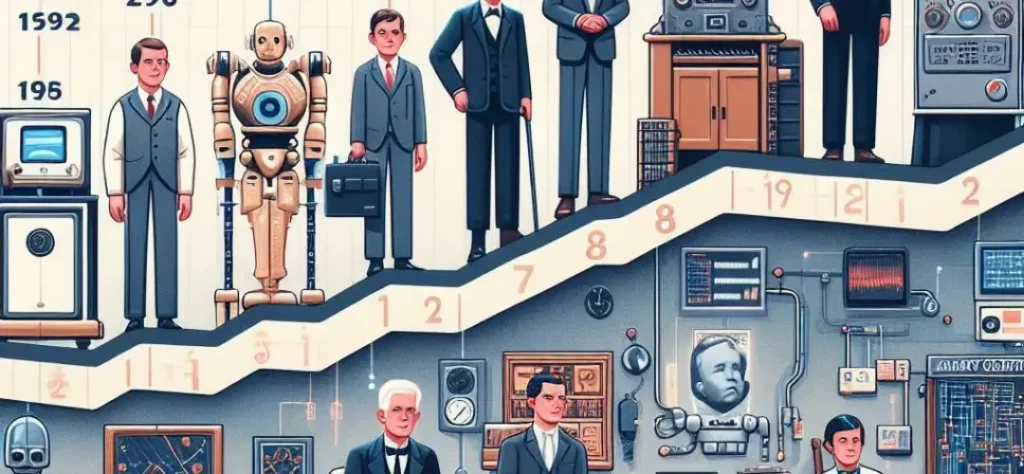
AI’s history is marked by significant milestones and breakthroughs. It began in the 1950s with Alan Turing’s work and the 1956 Dartmouth Conference. Despite setbacks in the 1970s and 1980s, AI advanced significantly in the 1990s and 2000s, with IBM’s Deep Blue and the resurgence of machine learning and deep learning technologies.
Types of Artificial Intelligence
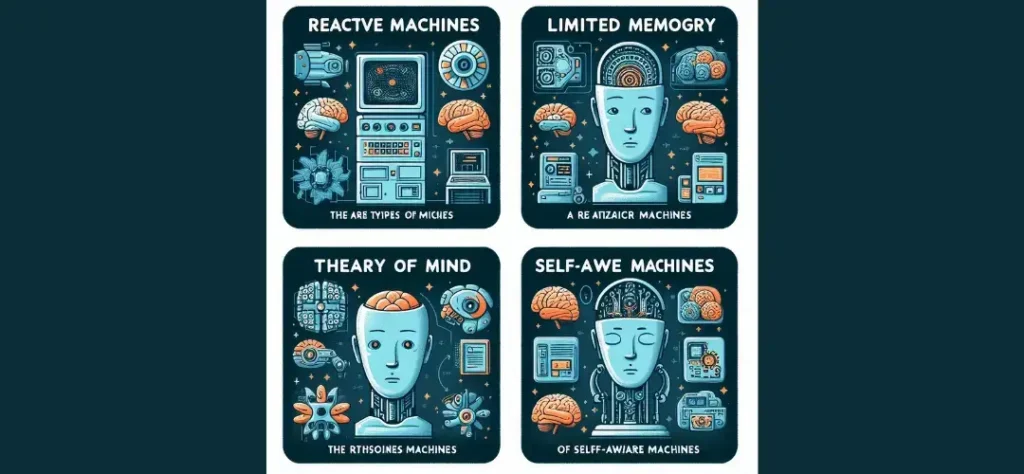
AI is categorized based on its capabilities and functionalities:
1- Reactive artificial intelligence (AI)

Reactive AI systems respond to specific stimuli without using past experiences. They perform particular tasks effectively but lack memory and learning capabilities. These systems are straightforward and limited in scope.
2- Limited Memory AI

Limited memory AI systems use past experiences to make current decisions and improve over time. Examples include self-driving cars, which analyze data from previous trips to navigate more effectively.
3- Theory of Mind AI
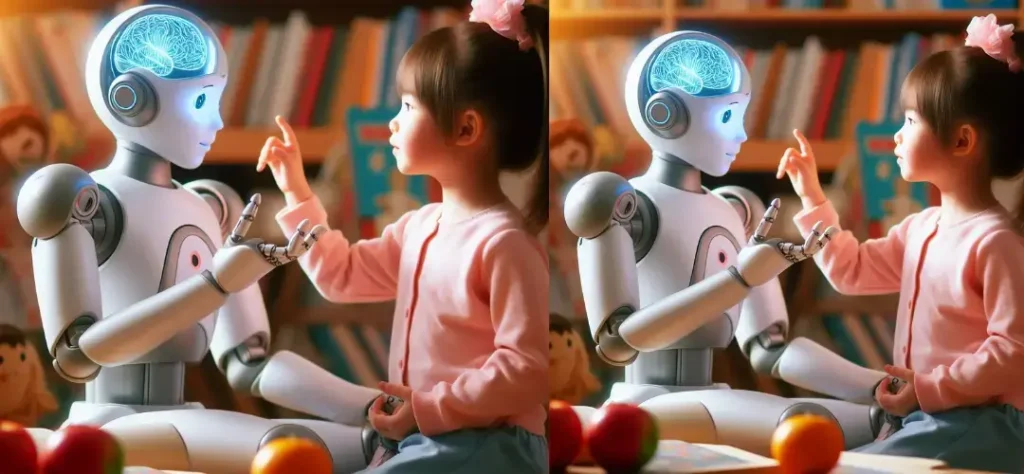
Theory of mind AI involves understanding and interpreting human emotions and social interactions. This type of AI aims to interact more naturally with humans, anticipating their needs and responses.
4- Self-Aware AI

Self-aware AI represents the most advanced form of AI, possessing consciousness and self-awareness. Although theoretical at this stage, self-aware AI would think and feel like humans, opening new possibilities and ethical considerations.
Weak AI vs. Strong AI

Weak AI, or narrow AI, performs specific tasks within predefined parameters. In contrast, strong AI, or artificial general intelligence (AGI), can understand, learn, and apply knowledge across a broad range of tasks, resembling human intelligence.
How Does Artificial Intelligence Work?
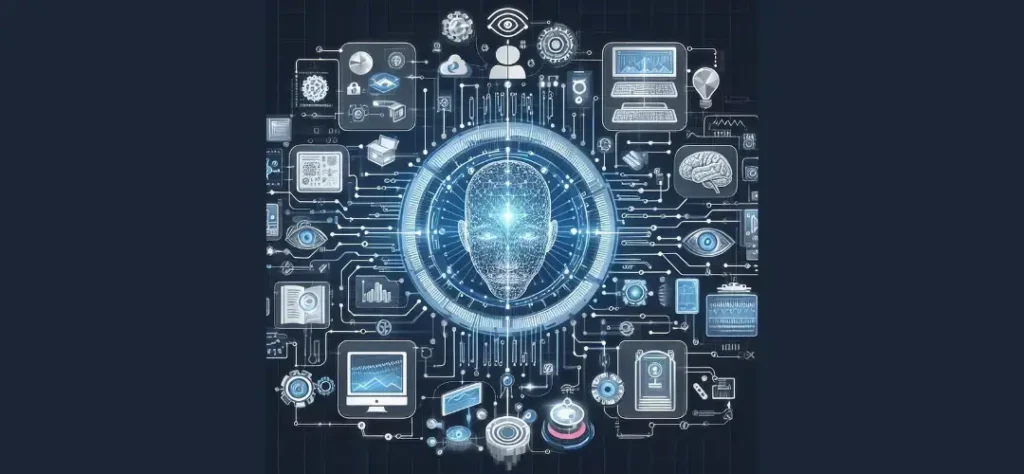
AI systems work through a combination of advanced technologies and methodologies. Key components include:
1-Machine Learning
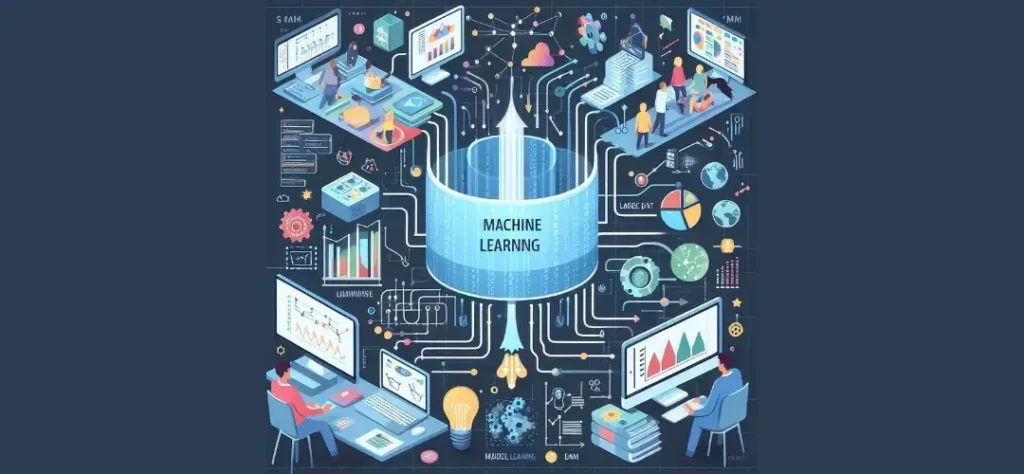
Machine learning, a subset of AI, involves algorithms learning from data to make predictions or decisions. It trains models on large datasets to recognize patterns and improve over time.
2-Artificial Neural Networks
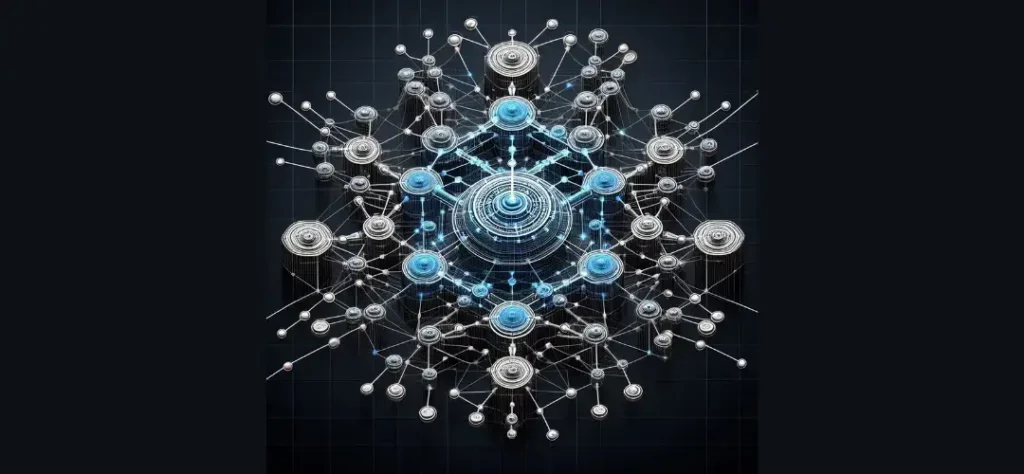
Neural networks are computing systems inspired by the human brain’s structure. They consist of interconnected nodes (neurons) that process information in layers, allowing for complex data analysis and pattern recognition.
3-Deep Learning
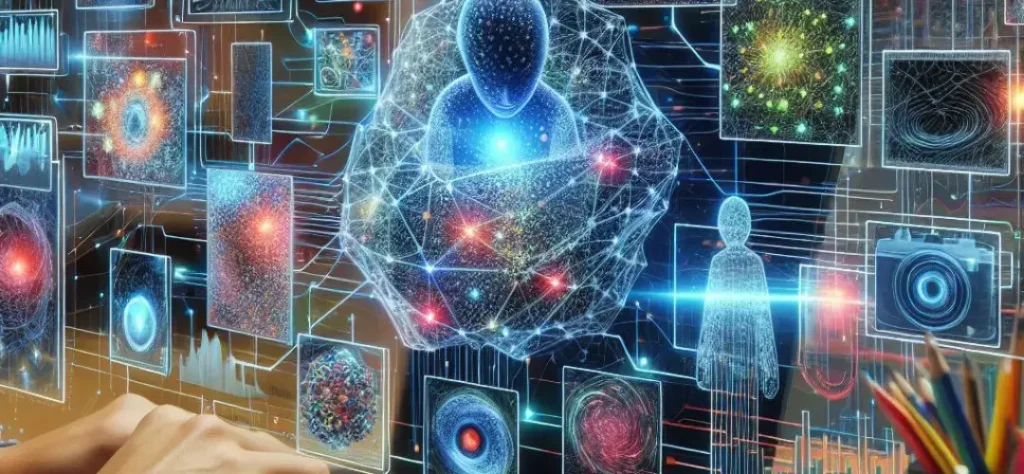
Deep learning, a subset of machine learning, involves neural networks with many layers. These deep networks handle vast amounts of data and perform highly complex tasks, such as image and speech recognition.
4-Natural Language Processing

Natural language processing (NLP) enables machines to understand and respond to human language. NLP powers applications like chatbots, virtual assistants, and language translation services.
5-Computer Vision
Computer vision allows machines to interpret and understand visual information from the world. This technology is used in applications such as facial recognition, autonomous driving, and medical imaging.
Applications of Artificial Intelligence
AI is transforming various industries, enhancing efficiency and creating new possibilities. Key applications include:
1-Healthcare
AI revolutionizes healthcare by improving diagnostics, personalized treatment, and predictive analytics. Examples include AI algorithms that analyze medical images to detect diseases and AI-powered platforms recommending treatment plans.
2-Retail
In retail, AI enhances customer experience through personalized recommendations, inventory management, and automated customer service. AI-driven analytics help retailers understand consumer behavior and optimize operations.
3-Customer Service
AI-powered chatbots and virtual assistants provide 24/7 customer support, handling inquiries and resolving issues efficiently. This reduces the workload on human agents and improves customer satisfaction.
4-Manufacturing
AI optimizes manufacturing processes by predicting maintenance needs, automating quality control, and enhancing supply chain management. This leads to increased productivity and reduced downtime.
5-Finance
In finance, AI is used for fraud detection, algorithmic trading, and risk management. AI systems analyze vast amounts of financial data to identify patterns and make informed decisions.
6-Marketing
AI enhances marketing strategies by analyzing consumer data, optimizing ad targeting, and personalizing content. AI-driven insights help marketers create more effective campaigns and engage with their audience.
7-Gaming
AI creates more realistic and adaptive gaming experiences. AI-driven game characters can learn from player behavior and provide challenging, dynamic interactions.
8-Military
AI applications in defense include autonomous drones, simulation training, and strategy development. AI enhances operational efficiency and decision-making in military contexts.
Additional Applications of Artificial Intelligence
- Speech Recognition: AI systems that transcribe and interpret human speech.
- Image Recognition: AI technology that identifies and classifies images.
- Translation: AI-powered language translation services.
- Predictive Modeling: AI systems that forecast trends and behaviors.
- Data Analytics: AI-driven analysis of large datasets for insights.
- Cybersecurity: AI systems that detect and respond to cyber threats.
Benefits of Artificial Intelligence
AI offers numerous benefits across various sectors:
1-Automating Repetitive Tasks
AI automates mundane and repetitive tasks, freeing up human workers to focus on more complex and creative activities. This increases productivity and efficiency in various industries.
2-Solving Complex Problems
AI excels at analyzing large datasets and solving complex problems, providing valuable insights and solutions that were previously unattainable. This is crucial in fields like medicine and environmental science.
3-Improving Customer Experience
AI enhances customer experience through personalized interactions, efficient service, and tailored recommendations. This leads to higher customer satisfaction and loyalty, driving business growth.
4-Advancing Healthcare and Medicine
AI advancements in healthcare lead to early disease detection, personalized treatment plans, and improved patient outcomes. AI-driven research accelerates the discovery of new treatments and drugs.
5-Reducing Human Error
AI systems perform tasks with high accuracy, reducing the likelihood of human error. This is particularly beneficial in fields where precision is critical, such as healthcare and finance.
Disadvantages of Artificial Intelligence
Despite its benefits, AI also poses several challenges and risks:
1-Job Displacement
AI and automation can lead to job displacement, particularly in industries where tasks are highly repetitive and manual. This requires a shift in workforce skills and adaptation to new roles.
2-Bias and Discrimination
AI systems can perpetuate existing biases if trained on biased data. This can lead to unfair treatment and discrimination in areas such as hiring, lending, and law enforcement.
3-Hallucinations
AI models, especially generative ones, can produce incorrect or nonsensical information, known as “hallucinations.” This poses challenges in ensuring the reliability of AI outputs.
4-Privacy Concerns
AI systems often require large amounts of data, raising concerns about data privacy and security. Ensuring that data is handled responsibly and ethically is crucial to maintaining trust.
5-Ethical Concerns
AI development and deployment raise ethical questions about autonomy, control, and accountability. Ensuring that AI is used responsibly and ethically is essential for its long-term success.
6-Environmental Costs
AI, particularly deep learning, requires significant computational power, leading to high energy consumption and environmental impact. Sustainable practices are necessary to mitigate these effects.
Ethical Use and Governance of AI
As AI continues to advance, ethical considerations and governance are crucial to ensure its responsible use. Key aspects include:
- Ethical Considerations: Addressing issues of fairness, transparency, and accountability in AI systems.
- AI Governance and Regulations: Establishing frameworks and regulations to oversee AI development and deployment, ensuring compliance with ethical standards.
The Rise of Generative AI
Generative AI, including technologies like GPT-4, creates new content such as text, images, and music. This has significant implications for creativity, content creation, and automation. Examples of generative AI tools include AI-powered art generators and text-based models that produce human-like writing, transforming various creative industries.
Future of Artificial Intelligence
The future of AI promises continued advancements and integration into various aspects of life. Key predictions include:
- Enhanced Human-AI Collaboration: AI systems will increasingly work alongside humans, augmenting their capabilities and enhancing productivity in different sectors.
- AI in Everyday Life: AI will become more embedded in daily activities, from smart homes to personalized education, making life more convenient and efficient.
- Breakthroughs in Healthcare: AI will lead to new medical breakthroughs, improving diagnostics, treatment, and patient care, ultimately saving lives.
- Sustainable AI: Efforts will be made to develop energy-efficient AI systems, reducing environmental impact and promoting sustainability.
- AI Ethics and Regulation: Greater emphasis will be placed on ethical AI development and comprehensive regulatory frameworks to ensure responsible use.
AI in the Enterprise
AI adoption in businesses is growing, offering numerous benefits such as improved efficiency, cost savings, and innovation. Key aspects include:
- Implementing AI in Businesses: Strategies for integrating AI into business operations and workflows to enhance productivity.
- Benefits and Challenges: Exploring the advantages and potential obstacles of AI adoption in the enterprise, including cost implications and workforce adaptation.
- Case Studies and Examples: Real-world examples of businesses successfully leveraging AI for competitive advantage, showcasing the diverse applications and impacts.
Key Takeaways
- AI is a rapidly evolving field with significant impacts across various sectors, transforming how we live and work.
- Understanding AI’s history, types, and workings provides a solid foundation for grasping its potential and future developments.
- AI applications are diverse, ranging from healthcare to finance, each offering unique benefits and challenges that must be addressed responsibly.
- Ethical use and governance are crucial to ensuring AI’s responsible development and deployment, safeguarding societal interests.
- The future of AI holds promise for enhanced human-AI collaboration and societal advancements, with ongoing efforts to balance innovation and ethics.
Conclusion
Artificial Intelligence is reshaping our world, offering unprecedented opportunities and challenges. From improving healthcare to revolutionizing businesses, AI’s impact is profound and far-reaching. As we continue to explore and develop AI technologies, it is essential to prioritize ethical considerations, ensure responsible use, and strive for sustainable advancements. By understanding and harnessing the potential of AI, we can pave the way for a future where technology and humanity coexist harmoniously, driving progress and innovation.

